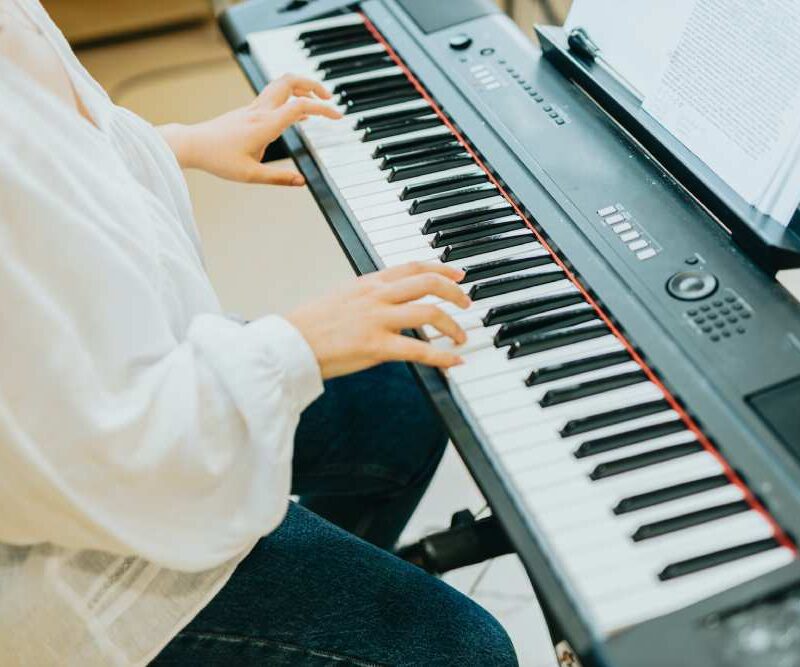Online lessons require a degree of spontaneity and initiative from students not found in in-person lessons. This means that students must be prepared for their lessons, planning when they will practice and learning to build habits.
Whether a quick YouTube piano lesson or an online course, learning from a virtual teacher offers many benefits to students of all ages.
Save Money
Since many teachers in the area (and around the world) teach piano online, you’ll be able to find someone who fits your budget. This makes online learning appealing for students who want to save money on lessons without sacrificing quality or experience.
However, the sound quality of Skype or FaceTime can be a big issue in online lessons. Even with high-quality microphones and lightning-fast internet, the sound quality differs from in-person lessons.
Also, if you take your lessons in person, the teacher can physically adjust your arms and hands for better technique (similar to how a tennis coach might physically correct your strokes). In a virtual lesson, this is not possible. The best thing is to be as prepared as possible and make sure your environment is distraction-free so that you can learn the most from your lesson. That means turning off the TV, putting your phone on silent, and having a quiet room for practice.
No Commute
In addition to reducing the financial cost of lessons, learning online eliminates the need to commute. This can be a huge benefit for students living in rural areas. Similarly, those with busy schedules who can’t afford to miss lessons due to travel can also find that learning piano online is an excellent option.
When taking lessons via video chat, the virtual piano teacher and students must be very focused. The teacher must carefully communicate their expectations and provide relatable examples and demonstrations while the student listens carefully to the verbal instruction, interpreting and executing it for themselves. This level of focus provides giant leaps in productive lesson time.
This starkly contrasts in-person lessons, where it can be easy to get distracted by socializing or even just checking out the latest apps on your smartphone. Keeping your phone off for the duration of the lesson helps ensure that your full attention is on the task at hand, practicing efficiently.
No Scheduling Issues
With traditional in-person lessons, students must schedule a weekly lesson time that works with the teacher’s schedule and their own. This can be not easy to juggle for busy families with other children’s activities.
With online piano lessons in Forbes Music Company, there’s a lot more flexibility for parents to find a lesson time that fits their family’s needs. In addition, many online teachers offer a flexible learning program with built-in practice guidance and music games to help students prepare for their lessons.
However, it’s important to note that while the flexibility of online piano lessons can be great, spontaneity is limited because your teacher can’t physically adjust your arms and hands during the lesson to improve technique like a tennis coach might. In addition, the camera angle on Zoom can sometimes make it difficult for the teacher to see details crucial to a student’s progress.
No Distractions
Students taking online piano lessons must focus on the screen and their music. This makes them more productive. For example, if a student has a habit of getting distracted by chatting during the lesson, it can be very difficult to stop doing so while practicing. This can be especially challenging if they are a beginner.
Focusing on the screen and the music forces students to listen more carefully to their instructor. This can also improve their listening skills, which can be a great benefit for those who are learning to play piano.
Regarding online lessons, many instructors have strict rules about ensuring that the student has no distractions during the lesson. This ensures that the student is fully engaged in their lesson and not wasting time during the session by doing something else that could be done later. This is an important element that can help students learn piano properly and progress confidently and enthusiastically.







